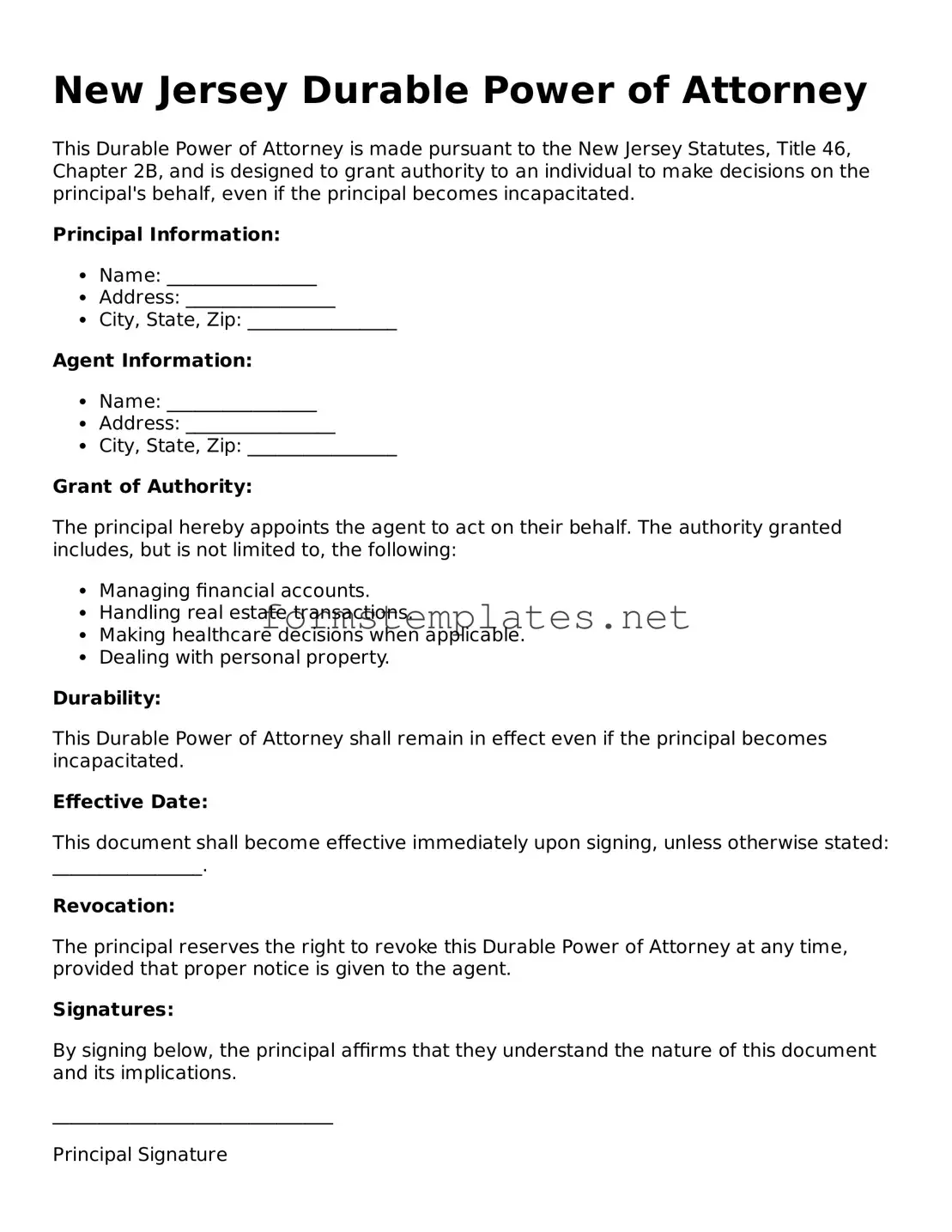Attorney-Approved New Jersey Durable Power of Attorney Template
A New Jersey Durable Power of Attorney form is a legal document that allows an individual, known as the principal, to appoint someone else, called an agent, to manage their financial and legal affairs when they become unable to do so themselves. This form remains effective even if the principal becomes incapacitated, ensuring that their affairs are handled according to their wishes. Understanding how to properly complete and use this form is crucial for anyone considering this important planning tool.
Open Editor Now

Attorney-Approved New Jersey Durable Power of Attorney Template
Open Editor Now

Open Editor Now
or
⇓ PDF Form
Your form still needs attention
Finalize Durable Power of Attorney online — simple edits, saving, and download.